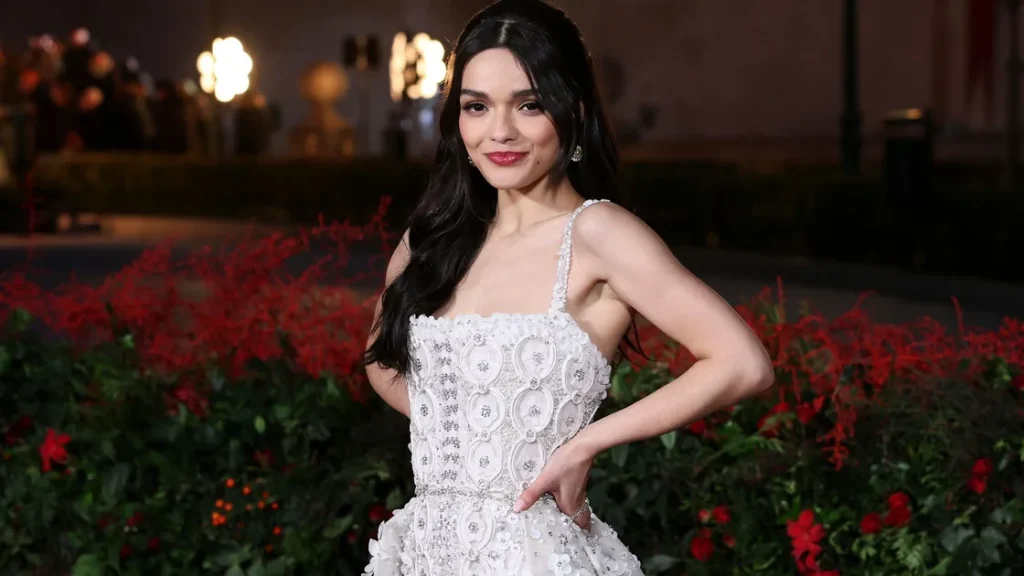Listen to the article
Disney’s Snow White Controversy: Rachel Zegler Bears Brunt of Studio’s Missteps
Disney’s reimagining of “Snow White” has been plagued with production challenges from its inception, including delays, casting controversies, and creative upheavals. Yet rather than addressing these issues directly, Disney appears to have allowed its lead actress, Rachel Zegler, to absorb the public backlash—transforming her into both a scapegoat and an unexpected symbol of changing cultural attitudes in Hollywood.
The controversy erupted when early interviews featuring Zegler discussing the film’s modern approach resurfaced online. In those interviews, she commented on updating the 1937 classic’s outdated themes, stating, “There’s a big focus [in the original] on her love story with a guy who literally stalks her. Weird! So we didn’t do that this time.” When critics labeled these comments as “woke,” Zegler acknowledged, “People are making these jokes about ours being the PC Snow White, where it’s like, yeah, it is—because it needed that.”
These statements triggered widespread outrage across social media platforms, with critics portraying Zegler as ungrateful and disrespectful toward Disney’s legacy. What’s notable, however, is Disney’s silence throughout the controversy—the studio appeared content to let its then-21-year-old star weather the storm alone.
The narrative has since shifted as observers began questioning why a young actress was bearing responsibility for the perceived failures of a film produced by a multi-billion dollar corporation—especially before the movie had even premiered. This represents a significant contrast to the recent controversy surrounding Blake Lively and “It Ends With Us,” where online criticism quickly turned toxic with little examination of whether the outrage was genuine or manufactured.
Lively, despite her carefully crafted public image and decades of experience, faced harsh criticism as being “too old” and “miscast” in the adaptation, despite author Colleen Hoover personally selecting her for the role. The discourse devolved into attacks on everything from her wardrobe choices to her interview responses.
What distinguishes the “Snow White” controversy is the public’s growing ability to recognize media manipulation. While the initial backlash against Lively focused on superficial critiques, the criticism of Zegler has exposed a troubling pattern: Hollywood’s tendency to sacrifice young, outspoken women—particularly women of color—when facing corporate challenges.
The situation intensified when Jonah Platt, son of “Snow White” producer Marc Platt, publicly blamed Zegler for the film’s projected box office struggles in a now-deleted post. He not only called her “narcissistic” but suggested her political activism—specifically her support for Palestine—contributed to the film’s difficulties.
This wasn’t the first indication of Disney’s discomfort with Zegler’s political stance. After sharing the film’s teaser trailer on X (formerly Twitter) in August 2024, she added “and always remember, free Palestine.” The comment section quickly filled with criticism, including personal attacks comparing her unfavorably to co-star Gal Gadot.
Reports suggest Disney executives pressured Zegler to remain silent on political issues, fearing market consequences. Rather than defending their lead actress from what had clearly become a politically motivated campaign, Disney maintained its silence.
Film critic Kelechi Ehenulo described Zegler as a victim of “culture wars” in a BBC interview, noting she’s “not the first and certainly not the last actor to be speaking about politics.” Fellow critic Conor Riley added that Zegler “became a lightning rod for controversy” because “Snow White” arrived at “the intersection of Hollywood’s creative stagnation, racial politics, international conflict, and America’s deep ideological divide.”
This shift in public perception marks an important development. Hollywood has long relied on a cycle where actresses—from Anne Hathaway during “Les Misérables” to Brie Larson with “Captain Marvel”—become focal points for criticism that extends beyond their performances.
In 2025, audiences are increasingly questioning why Zegler—who didn’t write, direct, or market “Snow White”—should bear responsibility for its challenges. They’re recognizing that Lively didn’t single-handedly greenlight “It Ends With Us,” and understanding that these controversies reveal more about Hollywood’s comfort with making women, especially women of color, into scapegoats than about the individuals themselves.
While misogyny in media coverage remains pervasive, the growing public recognition of these patterns and willingness to challenge them represents meaningful progress. It signals that Hollywood’s traditional blame-shifting tactics may be losing effectiveness as audiences become more media literate and willing to question manufactured controversies.
Fact Checker
Verify the accuracy of this article using The Disinformation Commission analysis and real-time sources.




6 Comments
I’m curious to see how Disney handles the balance between preserving the classic elements of Snow White while modernizing the narrative. It’s a delicate line to walk, but could result in an interesting reinterpretation.
Allowing the lead actress to absorb public backlash seems like an unfair burden for Disney to place on Rachel Zegler. She’s just trying to thoughtfully discuss the creative choices, which is reasonable.
While some may see these changes as ‘woke’, it’s important for media to evolve with the times. Addressing outdated elements can help make these beloved stories more inclusive and engaging for modern viewers.
It’s understandable that some fans may be hesitant about changes to a beloved story. But an open-minded approach could allow for a fresh take that captures the spirit of the original while evolving with the times.
The lead actress Rachel Zegler seems to have a thoughtful perspective on the changes being made. Acknowledging the need for a more nuanced take on the story is a reasonable approach.
It’s interesting to see how Disney is trying to modernize classic stories like Snow White. Updating the themes and challenging outdated tropes could make the story more relevant for today’s audiences.